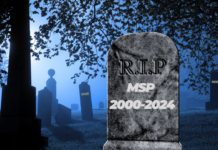Although Judge James R. Spencer could impose an injunction and block use of the BlackBerry wireless e-mail service used by an estimated three million subscribers in the United States, many analysts expect RIM to strike a deal with the patent-holder or introduce changes to work around the patents.
Even if Spencer orders a partial shutdown, analysts said, he is likely to give users 30 days or more to switch to competing companies that provide wireless e-mail service.
Lawyers for NTP Inc., a small northern Virginia firm that says it owns the patent on the technology that makes the BlackBerry work, have said government and emergency workers would be exempt from any BlackBerry blackout. Others who have come to rely on the device – such as lawyers, business travelers and brokers – might be out of luck.
Research in Motion, a Canadian company with a global business built on the success of the BlackBerry, had asked the justices to weigh in to decide whether U.S. patent law is technologically out of date in the age of the Internet and the global marketplace.
At issue was how U.S. law applies to technology that is used in a foreign country and allegedly infringes on the intellectual property rights of a patent-holder in the United States.
RIM had contended it cannot be held liable for patent infringement because its main relay station for e-mail and data transmission is located in Waterloo, Ont., where the company has its headquarters.
A federal appeals court upheld a jury decision at the district court level that found the BlackBerry infringed on the patents held by NTP. The appellate court also said it did not matter where the relay station is located.
Stephen B. Maebius, a Washington patent lawyer, said the Supreme Court’s refusal to intervene on Monday leaves RIM with one less option.
“The noose is getting a little tighter,” he said.
Maebius said Spencer is unlikely to be influenced by separate proceedings by the U.S. Patent and Trademark Office, where RIM has won a preliminary victory. The patents office could issue its final rejections of NTP’s patents in coming weeks.
Spencer, meanwhile, has set a Feb. 1 deadline for filings on whether he should issue an injunction.
Kevin Anderson, one of the lawyers that represents NTP, said the firm is pleased with the court’s action.
“We think the Supreme Court’s rejection of RIM’s position makes it clear that RIM should stop defying the U.S. legal system,” he said.
RIM sought to play down the significance of the court’s rejection.
“RIM has consistently acknowledged that Supreme Court review is granted in only a small percentage of cases and we were not banking on Supreme Court review,” said Mark Guibert, RIM’s vice president for corporate marketing.
“RIM’s legal arguments for the district court remain strong and our software workaround designs remain a solid contingency.”
Since its introduction in 1999, the BlackBerry has revolutionized the business world, allowing people to stay in constant e-mail contact with their offices and customers while they are away from their desktop computers.
The uncertainty spawned by the case has contributed to volatility in RIM’s stock.
At the Toronto Stock Exchange, RIM stock initially plunged nearly six per cent to as low as $72 Cdn on the Toronto Stock Exchange just after the Supreme Court’s decision was released but the shares quickly recovered.
The stock closed at $73.50, well below its intraday high of $77.24 and down $3 or nearly four per cent from Friday. In New York, where a much higher volume of RIM stock is traded, the shares closed at $64.25 US, down $2.37.
The legal fight began in 2001, when NTP sued RIM for infringement. The next year, a jury in Richmond decided that RIM had infringed on patents held by NTP, awarding the company 5.7 per cent of U.S. BlackBerry sales. Spencer later increased that rate to 8.55 per cent. At last count, the tally of damages and fees had exceeded $200 million.
In a court filing last week, NTP said it was willing to resolve the matter if RIM were to pay the original 5.7 per cent royalty fee, Anderson said.












